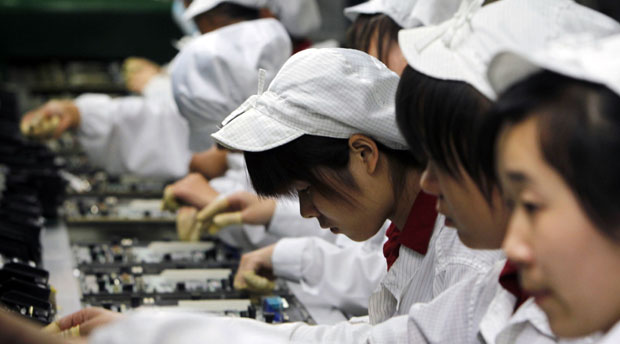BEIJING, China – A key gauge of Chinese manufacturing activity plunged to a two-year low in July, an independent survey showed Monday, the latest data suggesting the world’s second-largest economy faces challenges in the third quarter.
The final reading of Caixin’s Purchasing Managers’ Index (PMI) came in at 47.8 for the month, the Chinese media group said in a joint statement with Markit, a financial information services provider that compiled the survey.
The figure was below the 49.4 registered in June and was the weakest reading since 47.7 in July 2013, according to previous data.
READ: China’s Q2 GDP growth flat at 7.0% on-year — govt
The index, which tracks activity in factories and workshops, is seen as a key barometer of the country’s economic health.
A figure above 50 signals growth, while anything below indicates contraction.
“July data signalled that the downturn in China’s manufacturing sector intensified at the start of the third quarter,” Caixin and Markit said in the release.
“Renewed falls in both total new work and new export orders led manufacturers to cut production at the fastest rate since November 2011.”
The result came after China announced on Saturday that its official PMI slowed further in July, decelerating to 50.0 from 50.2 in June according to the National Bureau of Statistics.
READ: China crisis puts markets on edge
Caixin took over sponsorship of the PMI survey from British banking giant HSBC from July.
China’s economy, a key driver of global growth, expanded 7.4 percent last year, the weakest since 1990, and has slowed further this year, growing 7.0 percent in each of the first two quarters.
Authorities accept the need to steer China’s growth lower to make it more sustainable but have taken stimulatory measures to put a floor under the slowdown.
The central People’s Bank of China in June announced its latest cut in benchmark interest rates, the fourth such move since November, in an effort to boost lending as fuel for the economy.
It has also lowered cash reserve requirements for banks as well as other steps such as easing mortgage policies to boost the property market, a key reserve of wealth for many Chinese.
